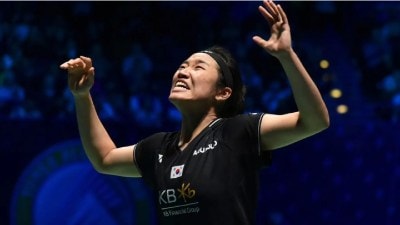The great champ 038; the common chimp
Chimps do it. Gorillas do it. Michael Phelps does it too.The exuberant dance of victory, arms thrust toward the...

Chimps do it. Gorillas do it. Michael Phelps does it too.
The exuberant dance of victory, arms thrust toward the sky and chests puffed out at a defeated opponent, turns out to be an instinctive trait of all primates, humans included, according to new research released on Monday.
Scientists from the University of British Columbia and San Francisco State looked at thousands of photographs of judo matches during the 2004 Summer Olympics and Paralympic Games in Athens, Greece, for such classic victory moves.
The images of the 140 blind and sighted athletes from 37 countries revealed that blind Paralympic athletes struck the same triumphant stance as sighted Olympic athletes. Since the blind athletes could not have learned the victory dance by watching others, the scientists concluded that the behavior was innate. They found the dance was the same for all.
This display of human pride and exuberance closely resembles the dominance displays of chimps and monkeys, which also feature outstretched arms and exaggerated postures, researchers said.
The animal world is full of inflated displays of superiority, noted Daniel M T Fessler, an anthropologist at the University of California, who is not involved in the research. Birds puff themselves up and cats arch their backs to make themselves look bigger and scarier to adversaries, he said. Jessica L Tracy, a psychologist at the University of British Columbia and lead author of the study, said the hangdog look of losers also turns out to be an instinctive trait.
Blind athletes slumped their shoulders and narrowed their chests, a posture that signals shame in humans and submission in other primates. Sighted athletes from most parts of the world did the same. But the researchers found that sighted athletes from individualistic societies, such as in the US and western Europe, tended to put on a brave front, outwardly appearing to stand tall in the face of defeat and shame, according to the report.
Tracy speculated that the athletes were intentionally hiding their feelings because losing is so stigmatised in their cultures.
- 01
- 02
- 03
- 04
- 05































